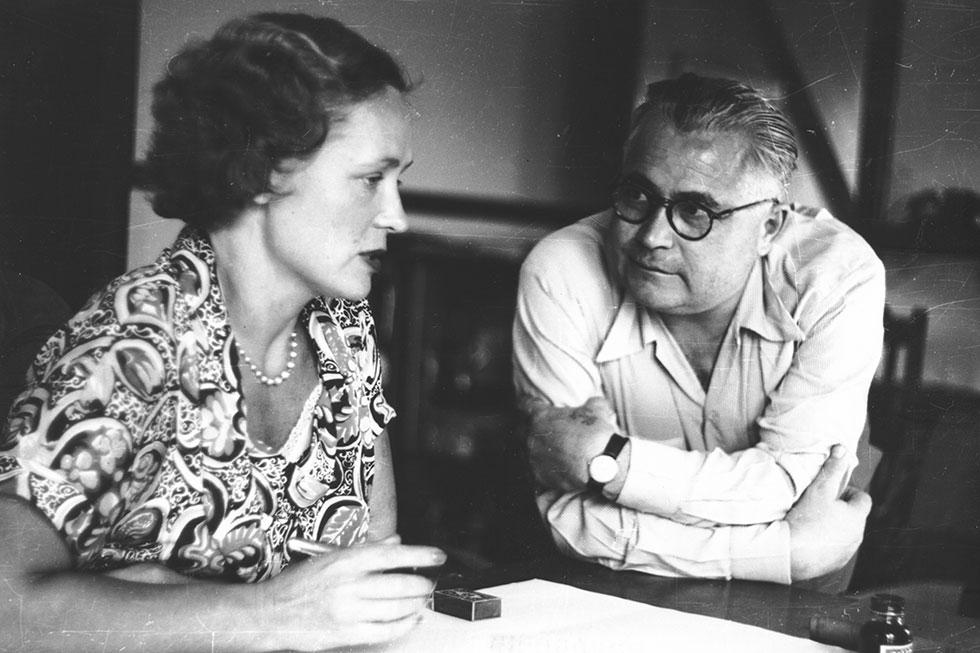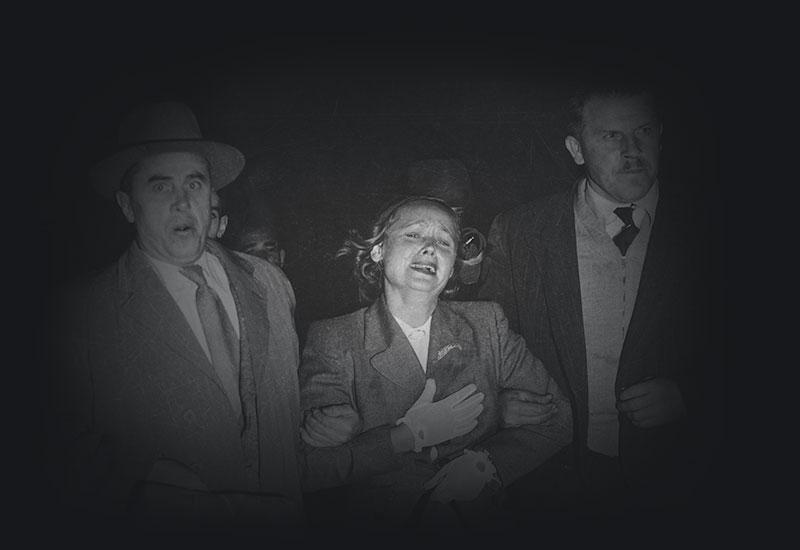The Royal Commission on Espionage ran from April 1954 to September 1955. It looked into Soviet espionage in Australia.

Vladimir Petrov and Evdokia Petrov inside the safe house in which they were held following their defection to Australia. Photograph presented as evidence to the Royal Commission on Espionage, NAA: A6285, 11.
Background: the Petrovs' defection
Vladimir Petrov had been third secretary of the Soviet Embassy in Canberra since February 1951. His wife, Evdokia, also worked at the embassy. But the couple were actually intelligence officers who were carrying out espionage in Australia.
On 3 April 1954, Vladimir Petrov defected to Australia. Evdokia followed on 20 April after Australian police freed her from Soviet couriers at Darwin airport.
The Petrovs' defections caused the USSR to withdraw their embassy from Canberra and expel Australian diplomats from Moscow.
The royal commission
On 13 April 1954, Prime Minister Robert Menzies told parliament about Vladimir Petrov's defection. He also established the Royal Commission on Espionage to inquire into and report on Soviet espionage in Australia.
The commission opened in Canberra on 17 May 1954. Over the next 10 months, it sat for 126 days and examined 119 witnesses, producing nearly 3000 pages of transcripts.
It also received over 500 exhibits, including the documents Vladimir Petrov handed to Australian authorities, which became known as 'the Petrov Papers'.
Findings of the commission
The commission presented an interim report to the Governor-General in October 1954. This report dealt with the authenticity of two of the Petrov Papers. It was published as an appendix to the final report.
The final report was presented to the Governor-General on 22 August 1955 and to parliament on 14 September 1955.
The commission found that:
- the Petrov Papers were authentic documents and the Petrovs were truthful witnesses
- the Soviet Embassy in Canberra had been used for espionage in Australia from its establishment in 1943 to its departure in 1954
- the only Australians who knowingly assisted Soviet espionage were communists.
The commissioners recommended that no-one be prosecuted as a result of their inquiry.
Records about the Royal Commission on Espionage
Most of the royal commission's records are held in our National Office in Canberra.
Several other government agencies also produced records related to the royal commission and Petrov affair.
See getting started with your research and keyword searching in RecordSearch for information on finding records in these series.

